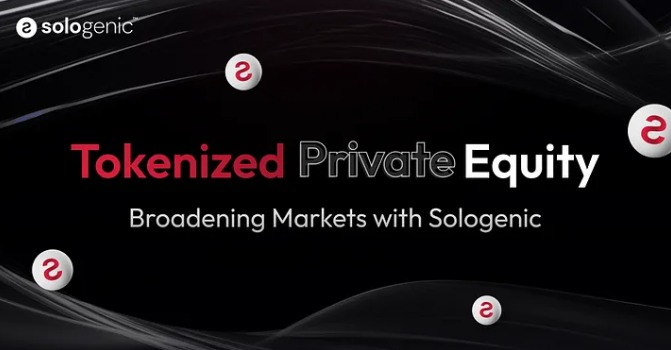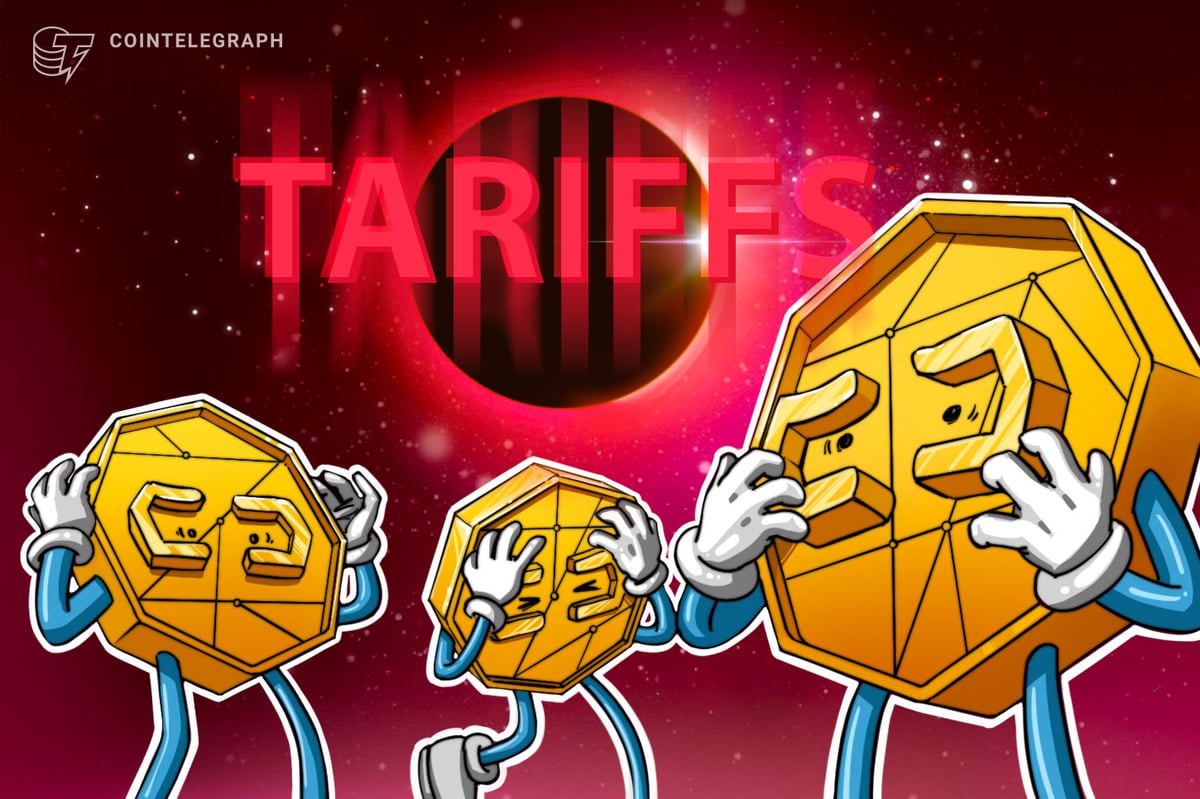The tokenization of private equity marks a profound shift in investment and blockchain technology. These tokens digitally represent ownership in private equity investments, utilizing decentralized ledgers. They facilitate fractional ownership, enhance liquidity, and streamline the management of private assets, effectively democratizing an asset class once known for its illiquidity and opacity.
Liquidity Democratized
Recent research underscores the growing interest in tokenizing private equity and hedge fund assets. A survey of fund managers across several European countries, responsible for managing approximately $546.5 billion in assets, found that 73% see private equity assets as the most likely to undergo significant tokenization. This trend is supported by estimates from the World Economic Forum, which predicts that up to 10% of global GDP could be stored and transacted via distributed ledger technology by 2027.
The financial benefits of private equity tokens are plenty, particularly in terms of liquidity. Tokenization enables these assets to trade on secondary markets, providing a more liquid alternative compared to traditional private equity investments. This gives investors the ability to enter and exit positions more easily and unlocks additional value in terms of usability and ease. Additionally, the inherent transparency provided by blockchain technology enhances trust and reduces risks associated with fraud and mismanagement.
Tokenization in OTC Markets
Over-the-counter (OTC) markets present another area where tokenization is making a significant impact. Traditionally known for trading unlisted securities that do not meet the requirements of stock exchanges, are often perceived as less transparent, opaque and exclusive markets.
The incorporation of blockchain technology in these markets is expected to enhance transparency, reduce transaction costs, and improve the efficiency of trade settlements. This technology will open up these markets to a wider audience, allowing for easier and more secure trading of a variety of assets, including those in private equity.
By establishing transaction records, capitalization tables, and smart contracts directly on the blockchain, trading in securities, including those in private equity, can be executed with unprecedented precision and minimal bureaucratic overhead.
Many of the processes involved in the trade and settlement of securities can be streamlined, notably reducing the need for intermediaries and thereby cutting transaction costs. A key aspect of this streamlining is the use of blockchain technology for escrow in OTC trades. Specifically, the XRP Ledger offers a robust mechanism for this purpose through its Trustlines feature. Trustlines on the XRPL enable the creation of secure and efficient escrow arrangements for trades. They facilitate the holding of assets until specific conditions are met, ensuring that all parties meet their obligations before the transaction is finalized.
This functionality not only enhances the security of trades by reducing counterparty risk but also significantly speeds up the settlement process. In traditional systems, escrow arrangements often involve several layers of verification and third-party involvement, which can be time-consuming and costly. The XRPL’s Trustline system, by contrast, automates and enforces these agreements directly on the blockchain, offering a more streamlined and cost-effective solution.
This advancement in escrow processing is particularly impactful in OTC markets, where the complexity and size of trades often necessitate robust escrow solutions. The ability to execute these essential components on the blockchain represents a major leap forward in making OTC trading more accessible, efficient, and secure.
Private Equity Tokenization Today
A few notable examples demonstrate the diversity and potential impact of these efforts:
Taurus and Teylor Partnership for Tokenizing SME Loans in Germany: Deutsche Bank-backed Taurus has partnered with Teylor, a fintech company, to tokenize small and medium enterprise (SME) loans in Germany. This collaboration aims to revolutionize the way SME loans are financed and traded. By tokenizing these loans, Taurus and Teylor are making it possible to trade these debt instruments on a blockchain platform, providing a new level of accessibility and liquidity to an otherwise traditional and less liquid asset class.
UK Publishes Regulations for Digital Securities Sandbox: The digital securities sandbox represents a significant step in the UK’s approach to integrating blockchain technology within its financial markets. Offering a controlled setting for testing, allows firms to explore the tokenization of assets, including private equity, without the full weight of regulatory compliance that would typically apply. This sandbox environment is crucial for identifying potential risks, understanding the impact of these technologies, and developing appropriate regulatory responses.
Republic’s Tokenized Venture Capital Funds: Republic, a platform known for democratizing investment opportunities, is set to make a significant mark in the field of private equity tokenization. The initiative involves creating digital tokens, $NOTE, that represent shares in a venture fund, making them available for trading on a digital securities platform. The tokenization of this fund is a pivotal step towards making venture capital investments more accessible to a wider range of investors.
Sologenic’s Tokenization Solutions for Private Equity
Sologenic’s role in the field of asset tokenization, particularly in private equity, aligns well with the growing trend of leveraging blockchain technology to transform traditional investment models. Sologenic, a sophisticated ecosystem built on the XRP Ledger, provides an innovative platform for the tokenization of a wide range of assets, including private equity.
- Tokenization Capabilities of Sologenic: Sologenic’s ecosystem includes the ability to tokenize non-blockchain assets such as stocks, ETFs, commodities, and potentially private equity. This process involves converting these assets into digital tokens on the blockchain, enabling them to be traded on over 30 global stock exchanges against cryptocurrencies
- Controlled Transparency: The whitelisting feature on Smart Tokens within Coreum adds a layer of security and regulatory compliance. It enables the platform to effectively manage and control access to tokenized assets, ensuring that only verified and authorized participants can engage in transactions. This feature is crucial, especially in adhering to various regulatory requirements like Know Your Customer (KYC) and Anti-Money Laundering (AML) standards.
- Regulatory and Technological Framework: As with the broader tokenized asset market, Sologenic’s platform operates within a rapidly evolving regulatory and technological landscape. Ensuring compliance with securities laws and navigating the complexities of blockchain technology is essential for the successful implementation of private equity tokenization.
“I’m observing a rapidly growing trend in the tokenization of private equity, and it’s evident that private equity fund managers are increasingly recognizing the need for enhanced liquidity, fractional ownership opportunities, and streamlined access to a broader pool of investors. Tokenization presents a transformative solution to address these crucial requirements, paving the way for a more dynamic and accessible private equity landscape.” — Michael McCaffrey, Business Development at Sologenic
Sologenic’s tokenization solutions, when applied to private equity, could significantly contribute to reshaping the investment landscape. With its robust technology and versatile platform, Sologenic is well-positioned to be a key player; aligning with global trends towards more accessible, transparent, and liquid investment opportunities. As the trend of tokenization continues to mature, Sologenic’s role in this field could become increasingly pivotal, leading to broader adoption and innovation in the RWA sector.
About Sologenic
Sologenic’s regulated arm is deploying a platform with a hybrid model for the on-demand tokenization of assets. This platform facilitates trading between crypto and off-chain traditional assets such as stocks & ETFs. The institutional-grade offering is designed for RIA’s, brokerage houses, family offices, banks and other financial institutions looking to tokenize real-world assets for their clients. Learn more at www.sologenic.com













 All while Pfizer—a company with a $2.3 billion criminal fine for fraudulent marketing, bribery, and kickbacks—was given blanket immunity from liability and billions in taxpayer dollars to produce a vaccine in record time with no long-term safety data.
All while Pfizer—a company with a $2.3 billion criminal fine for fraudulent marketing, bribery, and kickbacks—was given blanket immunity from liability and billions in taxpayer dollars to produce a vaccine in record time with no long-term safety data.
























